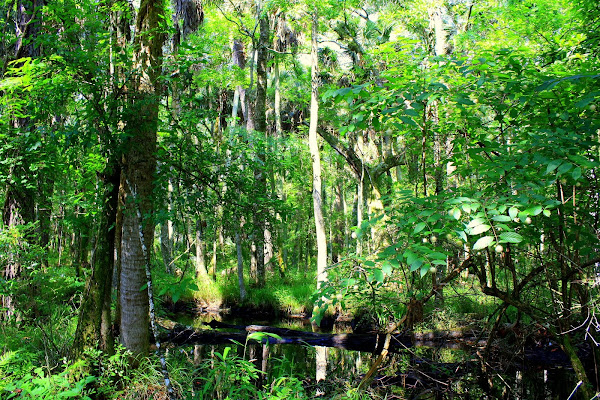 |
| East Beach, Santa Barbara, California |
There are no fat people in Santa Barbara, California.
Everyone rollerblading, trotting, biking, skateboarding, pushing strollers and
walking Fido is skinny. On this first day of the Santa Barbara Writers
Conference, I wait for the opening ceremonies by watching people parade down
Cabrillo Boulevard. Gentle swells from the Pacific Ocean frame each individual
as they pass. There is no cottage cheese
on these people. It is June 8th, and the high for the day is 65
degrees. In mid-afternoon. That’s right, Tallahassee – welcome to summer in
Southern California, where writers like me spend six days learning to perfect our
craft and trim the fat off our novel until the writing is as lean, strong, and
beautiful as the folks sashaying down the Boulevard.
Begun in 1964 by Barnaby Conrad, the SBWC, Santa Barbara
Writers Conference, oozes history. You can feel the ghosts of Conrad, Ray
Bradbury, and Charles Schultz swirling around, and know they must be proud of
the extensive work done by the conference committee. “We used to sleep on the
floor back at the Cate School, when this thing first started,” Sid Stibel, a
workshop leader, said. Stibel has attended every SBWC since arriving with Ray
Bradbury at the first one.
 |
| Saturday morning - June Gloom |
Daylight in Santa Barbara begins shortly after 5 a.m. with
the sound of finches reminding me to put out the day’s offering of crumbs on
the balcony’s rails. Salt scented breezes laugh through long palm fronds
sharing the joke with cawing Ravens that the majority of tall graceful palms
throughout California are not native, and are kept alive thanks to water which
is also imported to this semi-arid state. Morning is the most peaceful time of
day . . . until 9 a.m., and then, the race is on. Each day provides options for
illumination – there are twelve morning and afternoon workshops – twenty-four
different classes. I’ve chosen the Travel Writing and Interviewing Boot Camp,
hosted by Jerry Camarillo Dunn, Jr. for the morning sessions. Dunn writes for
National Geographic Traveler, among other publications.
 |
| Sunset |
In the afternoon, like many others, I switch it up among
workshops, trying to learn as much as possible in the time allotted. If you can
think of a topic or genre, the SBWC is more than likely offering a class on it.
An attendee said, “I feel like I’m in a one of a kind candy store. Every day I
have to choose which sweet to eat.” Precisely.
Four in the afternoon brings on the panels. Agent panel,
first time author panel, editor panel, muckety-muck panel . . . I can’t stay
away. Patricia Bracewell, author of “Shadow on the Crown,” and Karen Keskinen,
author of “Blood Orange,” gave encouragement to authors who waited until later
in life to write. Though different genres, a glimpse in their books has me
anticipating a glass of wine and a bit of time to spend reading them.
At 5 p.m. we break for supper, then drag tired feet and
minds to hear the evening speaker. Stephen Chbosky, author of “The Perks of
Being a Wallflower,” began the speaker series. Someone from the audience asked
him if he remembered the name of the first person he kissed. Chbosky answered,
“My wife’s in the audience, and she’s from New Jersey. NEW JERSEY,” he spelled
out each letter, “you know about New Jersey people. There was no one before
her. No one.” He slashes a tanned hand across his throat. “Ever.”
 |
| Note the Zoo sign points to over 200 writers. |
It is said that confession is good for the soul, so here
goes: My name is Peggy, and I’m a Pirate. Pirate sessions are for the
masochists, idiots who don’t know when to go to bed, or when to stop and smell
the Jacaranda trees that are blooming in mounds of purple prose. There are two
Pirate Sessions that start at nine and go until—. I made it to midnight one
night, and when I finally slogged heavy-eyed to my room, there were stalwart
individuals still reading their work and critiquing each other. Lorelai
Armstrong and John Reed lead these critique workouts. The sessions are an
addiction, and like other addictions, even though you know that the next day
you will fight to keep eyes open and brain alert, the next opportunity you have
to partake of the heady stuff, your trembling hand will reach out, and there
you’ll be, parking yourself at the table with the other addicts, hauling papers
out to read, and tuning eager ears to listen.
 |
| Dusk |
This is the halfway point of the conference. I look forward
to the rest of this feast with anticipation and dread. Anticipation because I
know I’ll learn so much that will help me with whatever I choose to put to pen,
and dread, because I’ll miss the people I met here, miss Santa Barbara, and
miss the different world that is Southern California.
Over the top of my computer, a pod of dolphins cartwheel a
few feet off shore. There must be sixty or more of the creatures, joyful in
their dance across the smooth water. The mammals are sleek and lean, like the
people of Santa Barbara. They are examples of what the conference attendees are
learning to do with our writing, use action verbs, make each word count, limit
the ‘ly’s. In other words, getting rid of the cottage cheese.
Imagining the possibilities,
Peggy Kassees




























